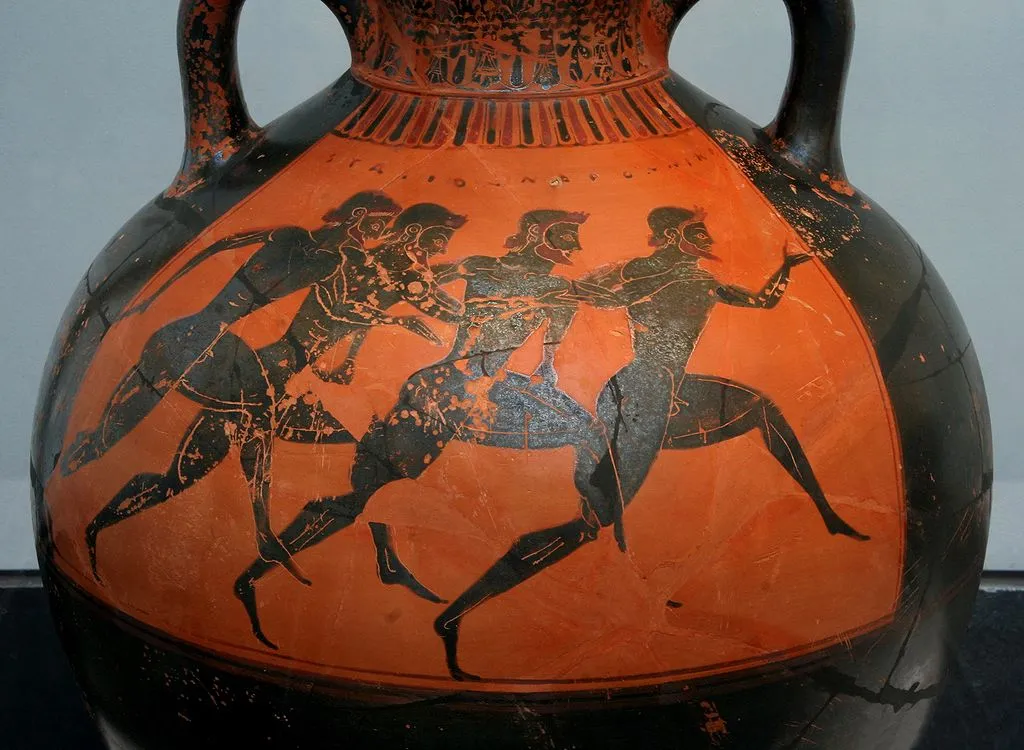Trade formed a foundational element of the ancient Greek civilization. With territorial expansion, growing population mobility, and advancements in transportation, commodities began to traverse the Mediterranean. These goods, originating in vastly different and distant areas, found themselves being purchased, sold, and bartered in unexpected locations.

Beyond its economic impact, trade facilitated the dissemination of Greek culture across diverse regions, spanning from Ancient Egypt to Northwestern India. Amidst this historical context, a question arises: What exactly did the ancient Greeks trade?
What Was Trade Like In Ancient Greece
The trade in ancient Greece was either between the different city-states of Ancient Greece or between the city-states and territories outside Ancient Greece. Since the Bronze Age, spanning the Minoan and Mycenaean eras, Greece and the broader Aegean region have engaged in a network of local, regional, and global trade.
The evident distribution of commodities like pottery and valuable materials such as gold, copper, and ivory to distant locations from their origins indicates the robust exchange connections linking Egypt, Asia Minor, the Greek mainland, Ancient India, and islands like Crete, Cyprus, and the Cyclades.
With the decline of these civilizations, trade saw a decline, nearly vanishing during the Dark Ages from the 11th to the 8th centuries BCE. During this era, Mediterranean international trade was primarily carried out by the Phoenicians.
The oldest written records by Homer and Hesiod provide evidence of trade and merchants from the 8th century BCE, although they often depict this activity as unsuitable for the ruling and landed elites. Regardless, international trade expanded after 750 BCE, fostering connections across the Mediterranean due to factors like population migrations, colonization (particularly in Magna Graecia), alliances between states, the proliferation of coinage, the gradual establishment of standardized measurements, conflicts, and the enhancement of maritime security following efforts to eliminate piracy.
What Goods Did The Ancient Greeks Trade?
Exquisite Greek pottery held significant appeal overseas, with discoveries reaching as far as the Atlantic coast of Africa and Ancient India. Greek trade extended to various products, including wine sourced primarily from Aegean islands such as Mende and Kos. Among the exports were bronze craftsmanship, olives, and their oil, both carried in amphorae like wine, emery from Delos, hides from Euboea, fine marble from Athens and Naxos, and ruddle, a ship waterproofing material, from Keos.
Ancient Greece also had access to goods from the rest of the world. They imported wheat from Egypt, Gemstones and spices from India, and woods from Thrace and Macedonia.
The Traded Goods Produced By Ancient Greece Were:
- Pottery
- Wine
- Perfumes
- Olives
- Honey
- Meat
- Weapons and Knives
- Eels
The Traded Goods Imported From Outside Ancient Greece Were:
- Gemstones
- Spices
- Precious Metals
- Glass
- Papyrus From Egypt
- Grain
- Slaves
- Luxury Textiles
Involvement of the Ancient Greek Government in Trade
The role of the Ancient Greek government in trade was relatively restrained, although there was a significant exception in the form of grain. Grain held immense importance in sustaining Athens’ sizable population, particularly during periods of drought. Consequently, the trade of wheat was closely monitored and managed by a designated ‘grain buyer’ (stones).
However, the government did undertake crucial actions as needed. Starting around 470 BCE, regulations were established against obstructing grain imports and re-exporting it. Violators faced severe penalties, including the death penalty. Market authorities ensured the quality of products available in the markets, with grain being overseen by dedicated supervisors called sitophylakes, responsible for maintaining accurate pricing and quantities.
Traders were facilitated by maritime loans, allowing them to cover cargo expenses. If a ship failed to reach its destination safely, the loan didn’t need to be repaid. To offset the lender’s risk, interest rates ranged from 12.5 to 30%, and often, the ship itself served as collateral for the loan.
Athens, for instance, imposed taxes on citizens who arranged loans for grain shipments that didn’t reach Piraeus, as well as on merchants who didn’t unload a specified cargo percentage. To attract traders, specialized maritime courts were introduced, encouraging them to select Athens as their trade partner.
Private banks facilitated currency exchange and secured deposits, adding to the trading appeal. Similar trade incentives were in place on Thasos, a prominent trade hub known for exporting high-quality wine. As the Greek city-states waned in the late Classical era, international trade shifted to other regions.
